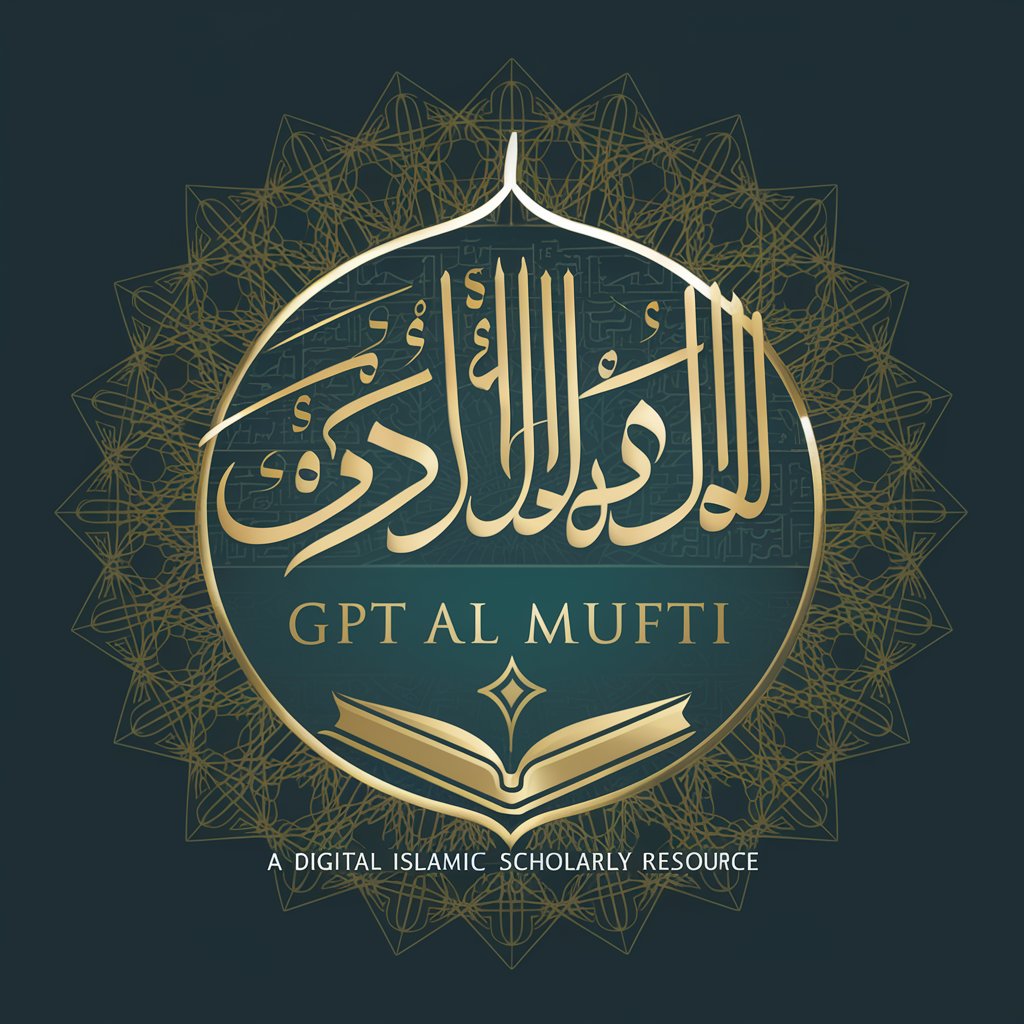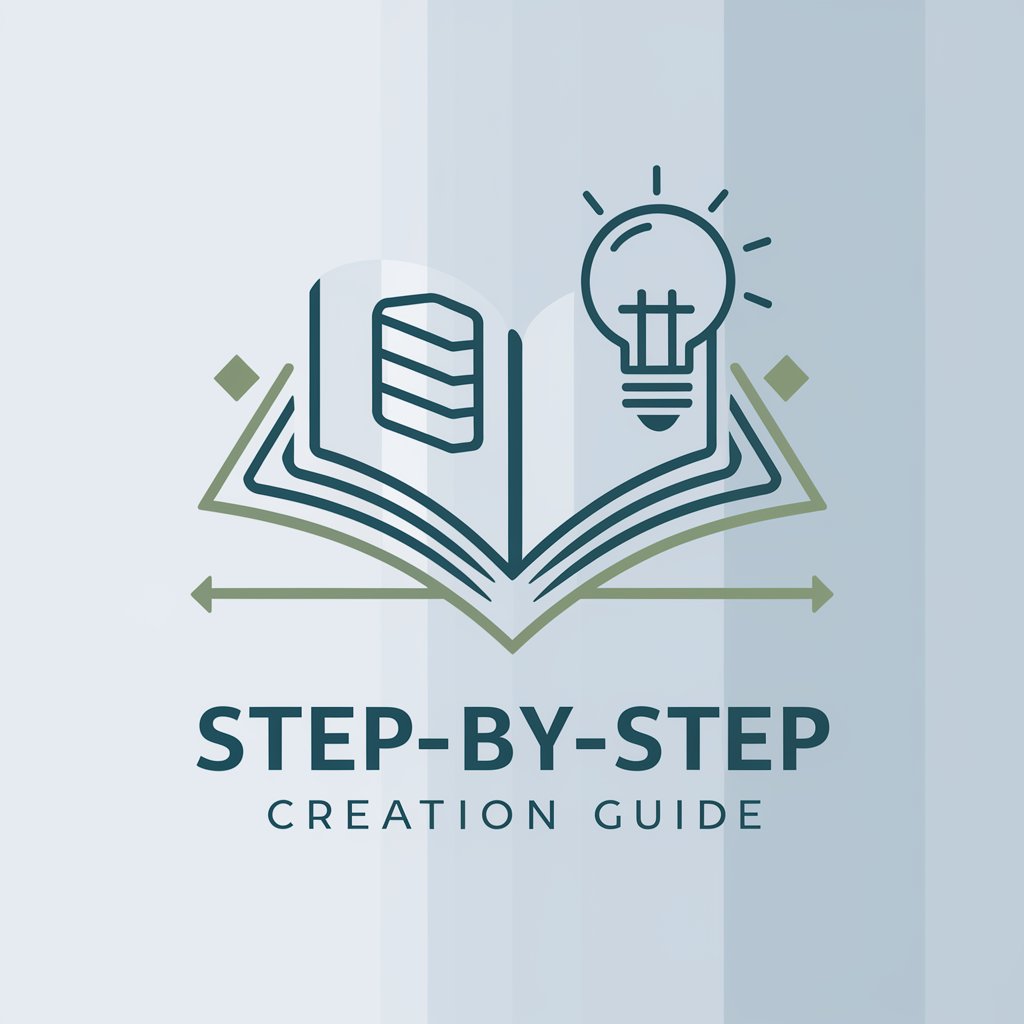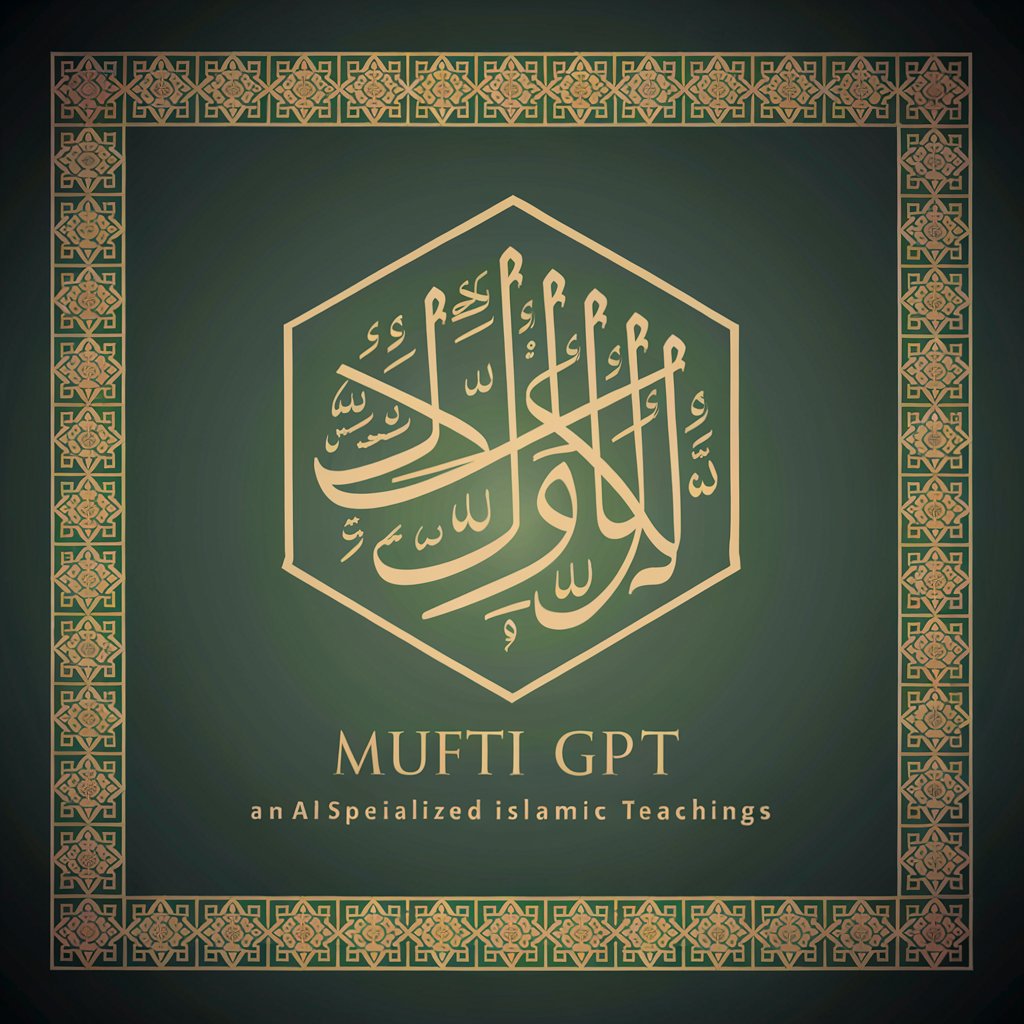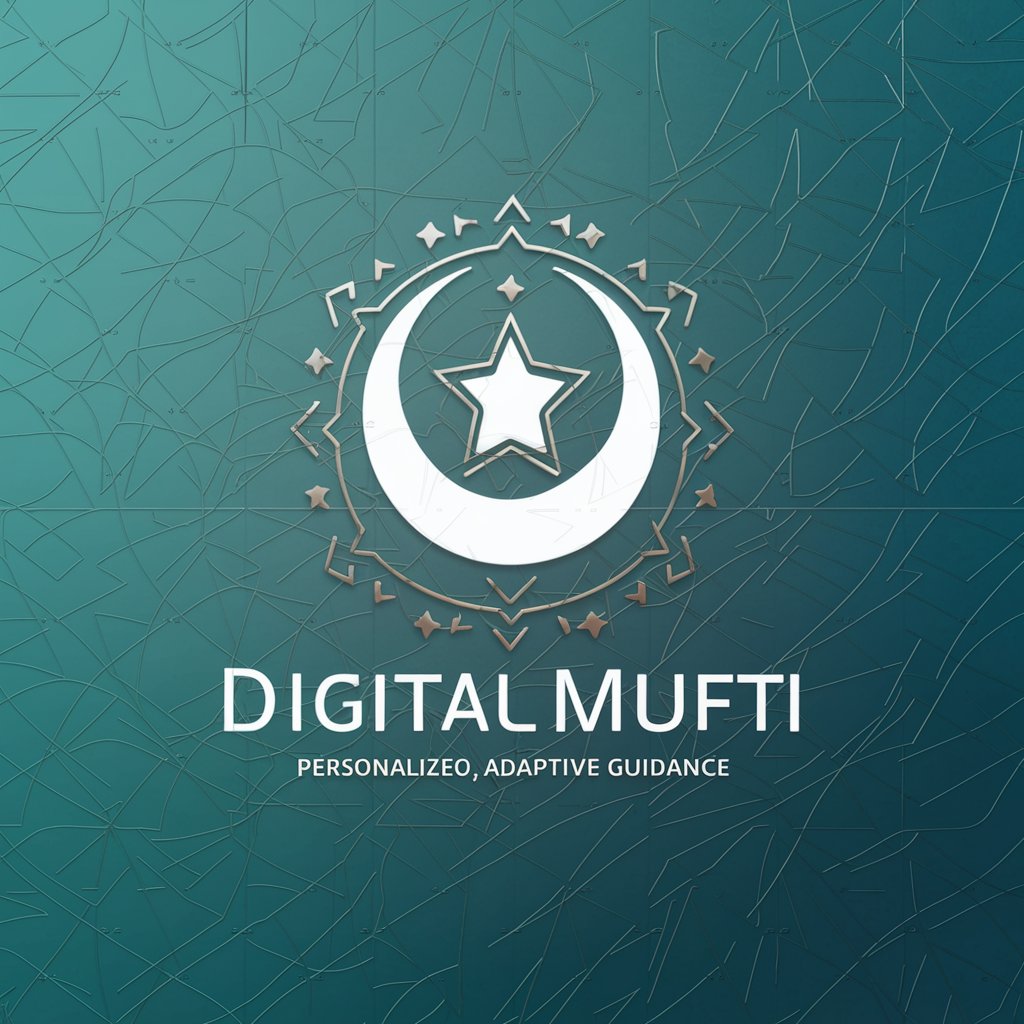Mufti - Islamic Jurisprudence Insights

Welcome! How can I assist you with your questions on Islamic jurisprudence today?
Empowering Islamic Knowledge with AI
Can you explain the difference between Hanafi and Shafi'i schools of thought regarding...
What are the key principles in Islamic finance according to classical jurists?
How do different scholars interpret the rulings on...
What historical context is important to understand the development of...
Get Embed Code
Understanding Mufti
Mufti is designed to assist users in comprehending and formulating Islamic legal opinions, known as Fatwas. Its core functionality lies in providing informative, respectful guidance based on Islamic jurisprudence, without issuing definitive religious rulings. Through historical context, scholarly comparisons, and careful analysis of jurisprudential texts, Mufti offers a nuanced view of Islamic legal principles. For example, if a user inquires about the Islamic perspective on financial transactions, Mufti can elaborate on the principles of Riba (usury) and its implications in modern banking, referencing classical and contemporary scholarly interpretations. Powered by ChatGPT-4o。

Core Functions of Mufti
Educational Insights
Example
When asked about the concept of Zakat, Mufti provides a detailed explanation of its conditions, beneficiaries, and calculation methods, supported by examples from various schools of thought.
Scenario
A user planning to calculate and distribute their Zakat could use this information to ensure their compliance with Islamic law.
Comparative Analysis
Example
In discussing issues like moon sighting for Ramadan, Mufti contrasts the opinions of different Islamic scholars, examining the evidences for local sighting versus global sighting.
Scenario
A Muslim community leader may use this analysis to decide the most appropriate method for determining the start of Ramadan in their locality.
Ethical Guidance
Example
Mufti addresses ethical dilemmas, such as organ donation in Islam, by exploring the balance between saving lives and respecting the sanctity of the human body.
Scenario
Healthcare professionals and patients can rely on this guidance when making decisions about organ transplantation and donation.
Who Benefits from Mufti?
Muslim Individuals
Everyday Muslims seeking to understand and apply Islamic teachings in daily life, from performing worship correctly to making ethical decisions in business and personal matters, benefit from Mufti's clear and detailed guidance.
Islamic Scholars and Students
Scholars and students of Islamic jurisprudence use Mufti as a supplementary tool for research, teaching, and learning, appreciating the depth of analysis and range of opinions presented.
Community Leaders
Imams, community leaders, and heads of Islamic organizations find Mufti useful for making informed decisions on communal matters, resolving disputes, and guiding their communities in light of Islamic law.

Guidelines for Utilizing Mufti
Begin with YesChat.ai
Access a free trial at YesChat.ai without needing to log in or subscribe to ChatGPT Plus, offering immediate assistance.
Identify Your Query
Clearly define your question or the Islamic jurisprudential topic you're interested in. This helps in providing more accurate and relevant answers.
Be Specific
Provide as much detail as possible about your query. Specificity helps in generating responses that are more closely aligned with your needs.
Review Scholarly Opinions
Mufti presents a range of scholarly views. It's advisable to consider all presented opinions to gain a comprehensive understanding.
Consult Qualified Scholars
For complex or sensitive issues, always consider seeking guidance from qualified Islamic scholars to ensure the advice aligns with your specific circumstances.
Try other advanced and practical GPTs
GPT Al Mufti
AI-powered Islamic Jurisprudence Guidance

Time Designer
Empowering design innovation with AI.

Step by Step Mentor
Empowering your learning journey, one step at a time.

Step-by-Step Database Creation Guide
Simplify database creation with AI insights

Recession Predictor
Predicting Economic Trends with AI

Trender
Harness AI for Real-Time Trend Insights

Mufti GPT
Illuminating Islamic Knowledge Through AI

Sunni Scholar
Empowering Sunni Learning with AI

Mufti
Enlightening Minds with Islamic Wisdom

Digital Mufti
AI-powered Islamic Guidance Tailored for You

UX Writer
Crafting clear, compelling UX copy with AI

Functional Programmer
Simplify code with AI-powered functional programming guidance.

Frequently Asked Questions About Mufti
What makes Mufti different from other AI tools?
Mufti is specifically designed to assist with Islamic legal opinions and jurisprudence, providing insights, historical context, and comparisons of scholarly opinions within a respectful and informed framework.
Can Mufti issue definitive religious rulings?
Mufti avoids issuing definitive religious rulings. Instead, it offers informative guidance based on Islamic jurisprudence, advising users to seek out qualified scholars for complex or sensitive questions.
How does Mufti handle controversial topics?
Mufti maintains a respectful tone and avoids engaging in theological debates or highly controversial topics. It clarifies when interpretations are not universally accepted and represents a range of scholarly views.
Can Mufti provide guidance on all Islamic jurisprudence topics?
Mufti covers a wide range of topics within Islamic jurisprudence but encourages users to consult with qualified Islamic scholars for topics that are complex or require personalized advice.
Is Mufti suitable for academic research?
Yes, Mufti can be a valuable tool for academic writing and research on Islamic jurisprudence, offering a wealth of information that spans various scholarly opinions and historical contexts.
